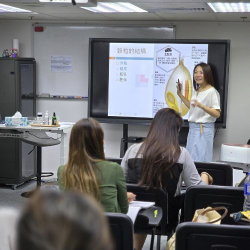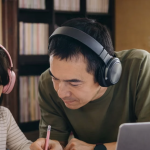The world is continuously changing, and our children are exposed to a variety of challenges and stressful situations from an early age. This includes social dynamics, excessive information, overstimulation, and high to unrealistic expectations from peers, family, and even themselves. However, one of the most crucial characteristics that we can help children develop is resilience, which has been defined as the ability to deal with or recover swiftly from adversity. Resilience is an important trait in growth and development that protects children from the challenges that life throws at them. They are typically equipped with the tools necessary to deal with disappointments, regulate their emotions, and cultivate an optimistic mindset. Despite suitable and increasingly developed safeguarding measures and responses, we are nevertheless unable to completely protect children under our care.
Why is resilience important?
According to studies, resilient children have better intellectual and social accomplishments as adults. Furthermore, they are emotionally supportive of their peers and promote social activities that improve their well-being and that of others. Resilient children can recover considerably faster from stress or failure, promoting better physical, mental, and emotional health throughout their lives (Ensz et al., 2024).
Significant role of teachers and parents
Although we can naturally develop resilience through interaction with our environment and nature, parents and teachers have been identified as essential groups of individuals who can assist in its development. The primary reason for this is the quantity of time they spend with children and the children’s trust in them (Ekaningtyas et al., 2024). We equally need to remember that the techniques are not one size to fit them all and can be adapted to children depending on their personality, culture, and experiences. Therefore, we can use the following suggested ways to develop and enhance resilience in children:
Parents and teachers can help develop children’s resilience by playing the key position of role models. Children in general learn best by observation and are competent observers. During our periods of uncertainty or pressure, we can demonstrate to children how calmly we faced that phase at work or discuss with them how we manage various obligations. It will help the kids to learn the importance of perseverance and emotional regulation.
Teaching children emotional intelligence by assisting them in seeing that it is acceptable to feel and experience diverse emotions such as grief, anger, frustration, and so on, allows them to gradually normalise the perceived ‘negative’ ones. As a result, it is easier for them to know how to deal with and regulate the emotions when they experience them. Use of mood charts and differential emotion scales can aid in helping children to explain the intensity of the emotions that they are experiencing. Parents and teachers should aim to build this further to enable the child to become empathetic and understand the emotions of others.
Another strategy that we can employ is encouraging independence. This can be achieved by allowing the children to explore freely but within safety while factoring in age-appropriate risks for the child to take. It can take the form of letting the child find a solution after falling out with a friend to challenging themselves, such as balancing at a height, jumping physical hurdles, or racing on a bike. It helps to foster a sense of confidence in their social and physical abilities.
Research indicates that children’s resilience is strengthened by supportive relationships and interactions. The child’s sense of safety, understanding, and belonging is greatly enhanced by the relationships they have with important adults, such as parents, guardians, teachers, close friends, and family members. This increases the guarantee that the youngster will always have someone to turn to when they need someone to talk to or are feeling anxious or overwhelmed. Parents and teachers should aim to build purposeful relationships with the child and train the child to do the same with sibling(s) and peers.
Creating resilience in children is a complex process that necessitates consideration of a variety of contributing elements, such as support structures, a purposeful approach, trust in the child’s skills, and coping methods. Understanding and focusing on these factors can considerably improve children’s ability to thrive in the face of adversity and challenges.
Health and Wellness Products / Services That may Be Of Interest:
Get a special discount by quoting code AISLMALL during CHECKOUT.
Daybook Journal

iLiving: Initial 90-minute Consultation with Supported Healing for Children

iLiving consultation includes health scan of a child who is suffering from chronic physical or mental health challenge and coaching to their caretaker/parent(s).
Llegend – Diploma in Professional Aromatherapy

This aromatherapy course by Llegend covers essential oils, anatomy, and therapeutic applications, combining theory and practice. Accredited by the IFA, it offers exemptions for the UK TQUK Level 4 Certificate. As Hong Kong’s leading college for aromatherapy, it boasts 7 international accreditations.
Therapy Services – 1 on 1 Offline Therapy Service (Speech Language-Pathology/ Occupational Therapy)

Allied Health School Services certified speech-language pathologists and occupational therapists offer personalized therapy for speech, language, motor skills, emotional regulation, and self-care. We use evidence-based practices to support students’ academic and social growth, boosting confidence and promoting inclusive learning environments.
Wellbeing Books Series

Dr. Willard’s books blend mindfulness with practical approaches for families. *Alphabreaths* teaches kids mindfulness through ABC-themed breathing exercises, while *Growing Up Mindful* offers parents and educators tools to help children build resilience, self-awareness, and empathy through mindfulness.









